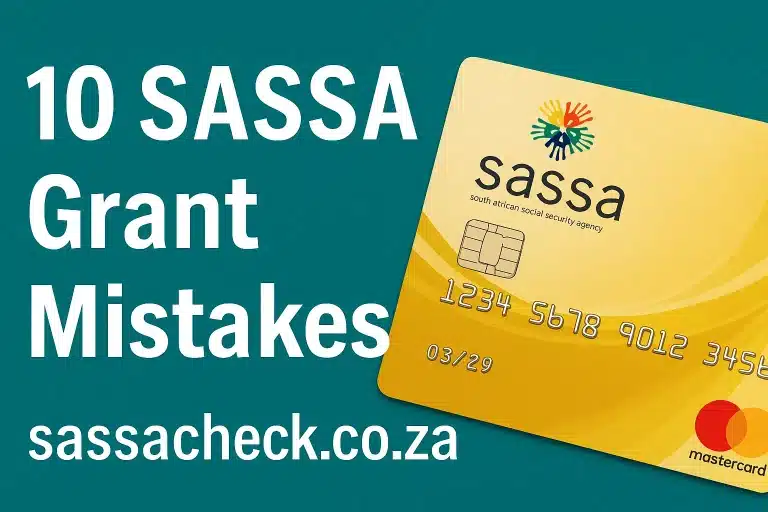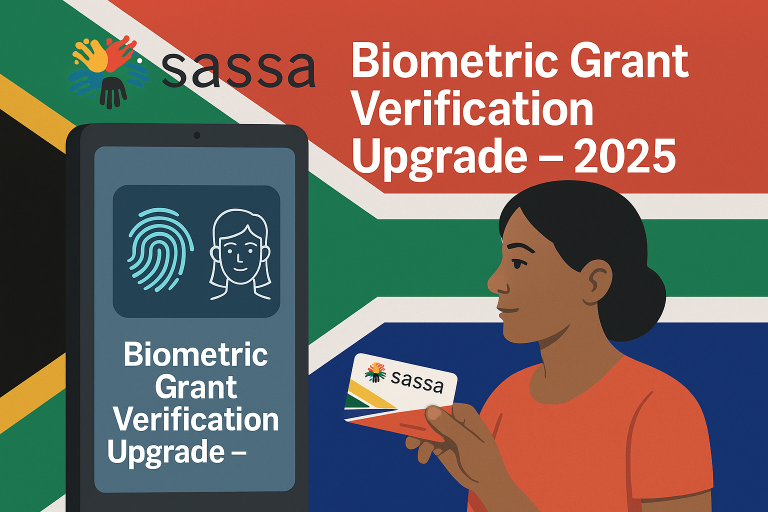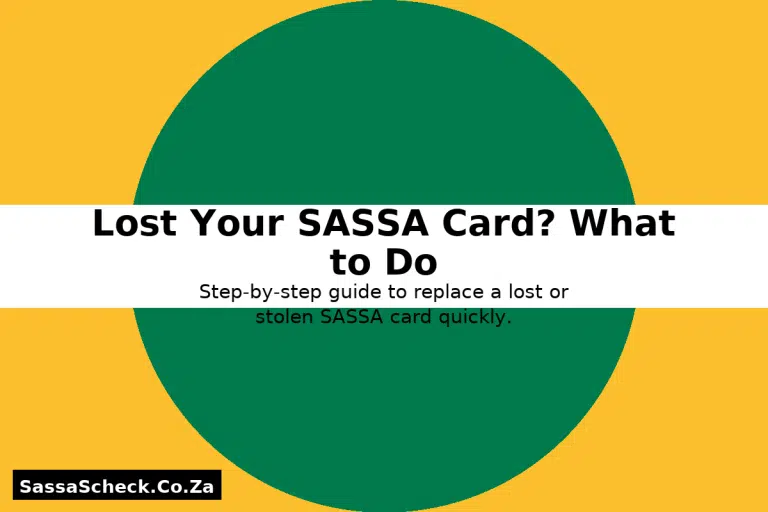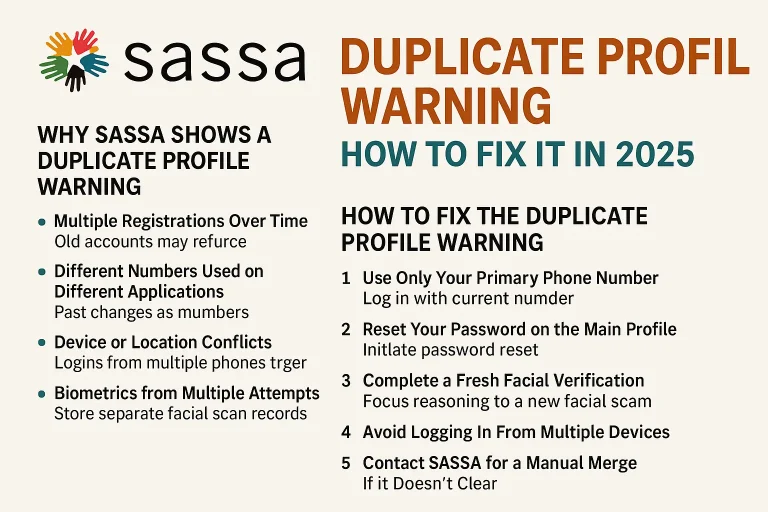10 Common SASSA Grant Mistakes and How to Avoid Rejection
Applying for a SASSA grant can feel overwhelming. Many applicants submit forms with high hopes, only to find out weeks later that their applications have been rejected. While some rejections are unavoidable, many happen because of simple mistakes that could have been prevented.
This guide highlights the most common errors applicants make and explains how you can avoid them so your grant has the best chance of approval.

Submitting Incomplete Forms
One of the most frequent reasons for rejection is missing information. Many applicants rush through forms and leave out sections such as household income, banking details, or ID numbers. SASSA requires complete information to verify eligibility.
How to avoid it: Double-check your form before submission. If applying online, ensure every mandatory field is filled in. For paper forms, ask a SASSA official to review it on the spot.
Using Incorrect or Outdated Personal Information
If your personal details do not match those held by Home Affairs, your application will almost always be rejected. Common errors include using nicknames, spelling mistakes in surnames, or failing to update your marital status.
How to avoid it: Always use the exact name and ID number shown on your official South African ID. If you recently changed your surname, update it at Home Affairs first before applying.
Failing the Identity Verification Process
SASSA cross-checks every applicant against the Department of Home Affairs database. If there’s a mismatch — for example, if your ID is flagged as deceased or duplicated — your application will fail.
How to avoid it: Verify your ID status with Home Affairs before applying. If there are errors in their system, correct them immediately.
Not Meeting Income Sources
Most grants have strict income thresholds. If your application shows income above the limit, or if supporting documents are missing, SASSA may assume you don’t qualify.
How to avoid it: Understand the rules for the grant you’re applying for. For example:
- Child Support Grant: caregiver must earn less than a set monthly amount.
- Older Persons Grant: single applicants must earn below a specific threshold.
Submit bank statements or payslips that prove your income falls within the limit.
Submitting the Wrong Supporting Documents
Many applications are rejected because the wrong documents are uploaded — for example, expired IDs, blurry scans, or missing birth certificates for children.
How to avoid it: Always bring original documents when applying in person. If applying online, scan or photograph them clearly. Ensure documents are up-to-date and legible.
Applying for the Wrong Grant Type
Applicants sometimes apply for the SRD grant when they actually qualify for a permanent grant, or apply for a disability grant without the required medical assessment.
How to avoid it: Read carefully about each grant type. If unsure, ask a SASSA officer which grant fits your situation best.
Duplicate Applications
Submitting multiple applications for the same grant under the same ID can trigger rejection. The system sees duplicates as potential fraud.
How to avoid it: Apply once and track your application status online, via WhatsApp, or at a SASSA office. If you think something went wrong, follow up rather than reapplying.
Banking Errors
Many applicants enter incorrect bank account details or accounts not registered in their own name. SASSA will reject payments to third-party accounts.
How to avoid it: Ensure your bank account is in your name, matches your ID, and is active. Update details directly on the SASSA system if they change.
Missing Deadlines
Some grants have strict renewal or review deadlines. If you fail to update your details when requested, your grant can be suspended or cancelled.
How to avoid it: Check SASSA’s official communication channels regularly for deadlines. Set reminders on your phone to avoid missing important dates.
Ignoring SASSA Follow-Up Requests
Sometimes SASSA asks for extra information — but applicants don’t respond. Failure to provide it leads to rejection.
How to avoid it: Always keep your phone on, answer calls from SASSA, and check your SMS or email. If you miss a message, visit your nearest office quickly.
FAQs
Final Thoughts
Most SASSA application rejections are caused by preventable mistakes. By double-checking your forms, preparing the correct documents, and ensuring your information matches official records, you can save yourself time, stress, and disappointment.
For many South Africans, grants are a lifeline. Getting it right the first time means faster access to the support you need.






